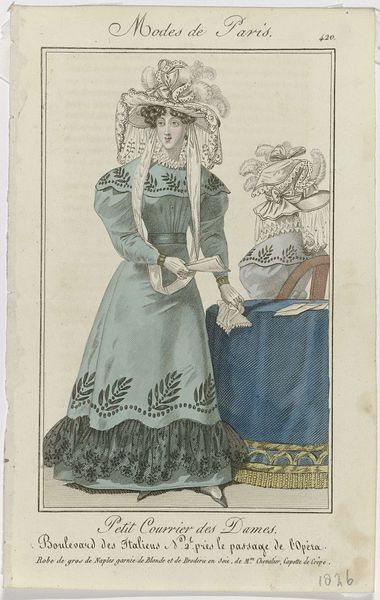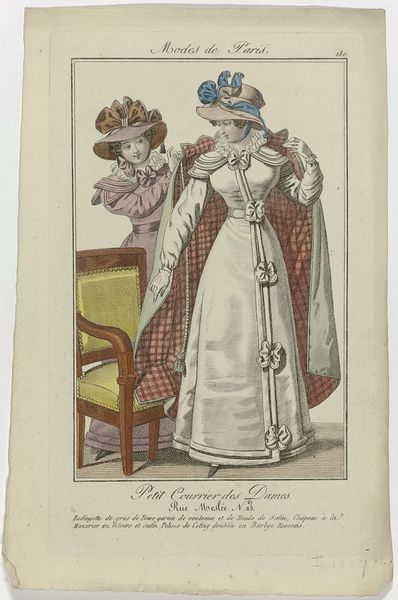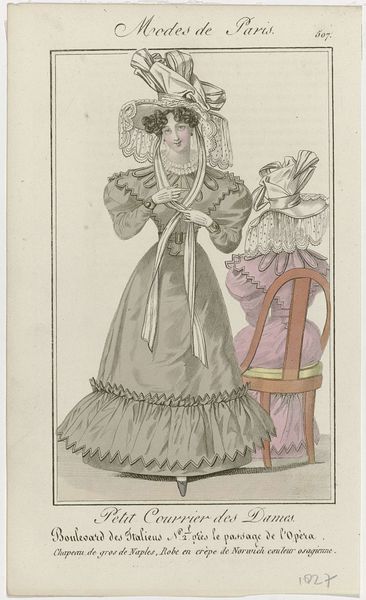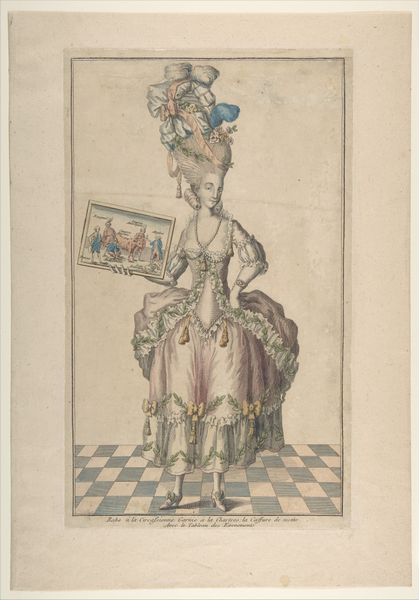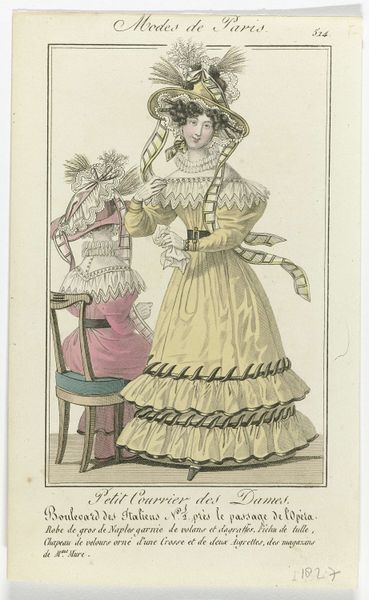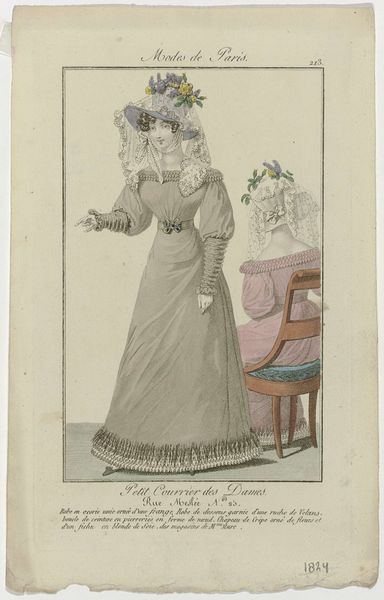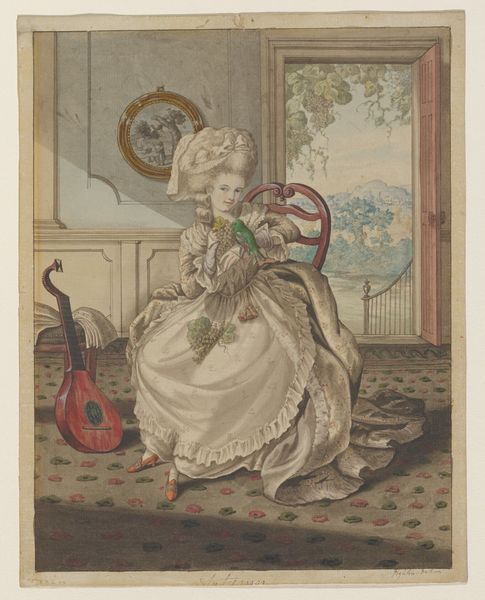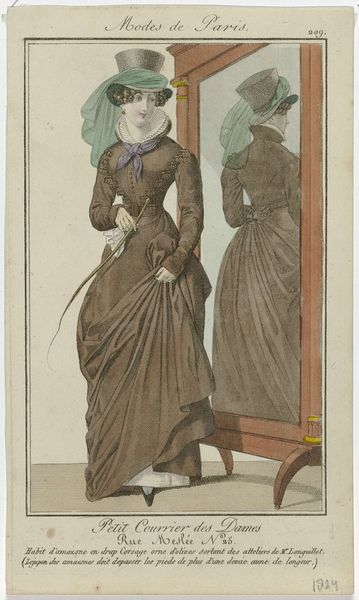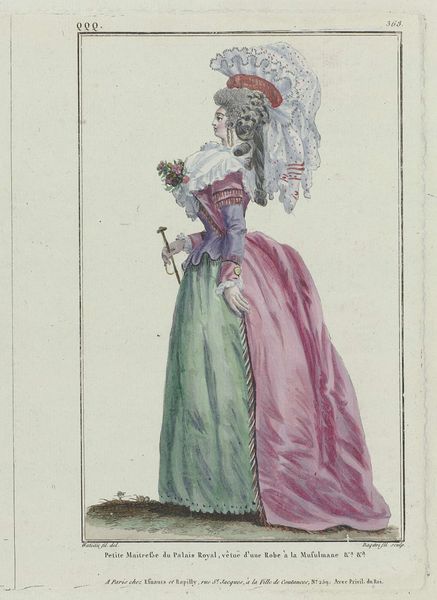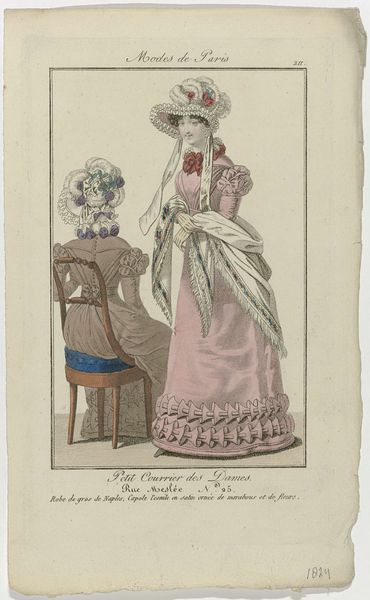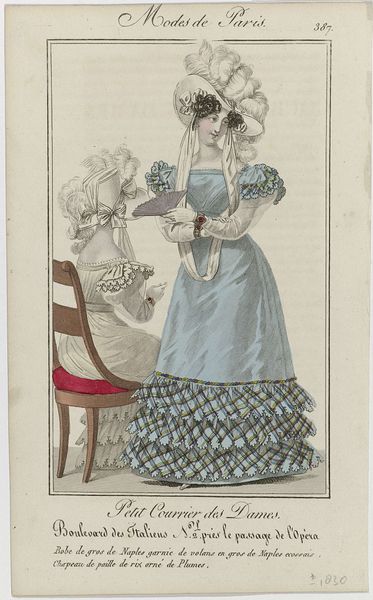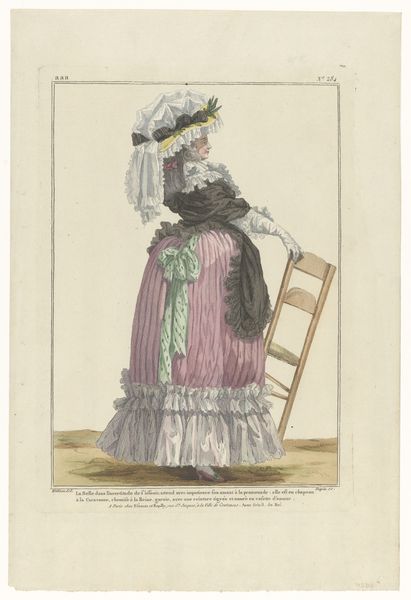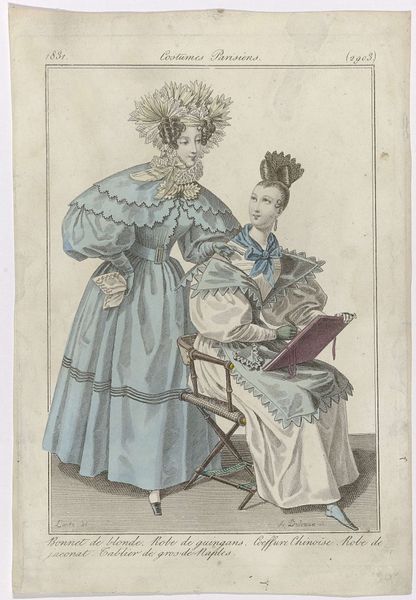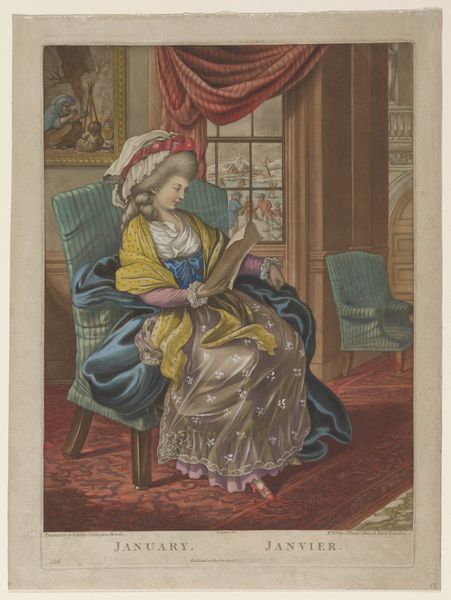![The Paintress of Maccaroni's [sic] by Robert Dighton](/_next/image?url=https%3A%2F%2Fd2w8kbdekdi1gv.cloudfront.net%2FeyJidWNrZXQiOiAiYXJ0ZXJhLWltYWdlcy1idWNrZXQiLCAia2V5IjogImFydHdvcmtzLzQ1ZWY2ODkwLTFmNzMtNDY4YS1iNDdhLTk3MjA3NmZiYjM5Mi80NWVmNjg5MC0xZjczLTQ2OGEtYjQ3YS05NzIwNzZmYmIzOTJfZnVsbC5qcGciLCAiZWRpdHMiOiB7InJlc2l6ZSI6IHsid2lkdGgiOiAxOTIwLCAiaGVpZ2h0IjogMTkyMCwgImZpdCI6ICJpbnNpZGUifX19&w=3840&q=75)
drawing, coloured-pencil, print
#
portrait
#
drawing
#
coloured-pencil
# print
#
caricature
#
coloured pencil
#
watercolour illustration
#
genre-painting
Dimensions: 13 1/2 x 10 in. (34.29 x 25.4 cm) (plate)
Copyright: Public Domain
Robert Dighton created "The Paintress of Maccaroni's" as a hand-colored print, a satirical rendering of gender, class, and artistic expression in 18th-century England. Here, Dighton engages with the cultural phenomenon of the "macaroni," a term used to describe fashionable young men who adopted flamboyant styles and manners influenced by continental Europe. By depicting a woman as the painter of these figures, Dighton playfully inverts traditional gender roles, hinting at the shifting dynamics of artistic patronage and social identity. The artist invites us to consider how identities are constructed, performed, and perceived within specific historical contexts. The print serves as a commentary on the performative nature of identity and the ways in which individuals negotiate social expectations through dress, behavior, and artistic expression. "The Paintress of Maccaroni's" ultimately speaks to the complexities of identity formation and the ongoing negotiation between individual agency and societal norms.
Comments
minneapolisinstituteofart about 2 years ago
⋮
Macaroni Prints The term "macaroni"-named after the Italian pasta-was coined in the 1760s to refer to the fashionable young English gentlemen who traveled to Italy and brought back the food, manners, and dress of the Continent. By the 1770s, however, it had become a term of ridicule, used to describe, as one contemporary magazine put it, "a person who had exceeded the ordinary bounds of fashion." These were men and women, generally of lesser privilege, who had imitated the dress and affected manners of the Grand Tourists-their enormous powdered wigs, extravagant, tight clothes, small shoes, and delicate manners. Thus "macaroni" came to stand for the eighteenth-century fashion victim and the widespread artifice, effeminacy, and social climbing that was seen as corrupting Georgian England. The macaroni phase was recorded for posterity with great humor in countless caricature prints, which exaggerated the clothes and particularly the hairstyles of this fad to an absurd degree. With the American Revolution unfolding at just this time, British soldiers were said to have insulted enemy soldiers with the same pejorative macaroni term, singing famously of the colonials' foolishness in the song Yankee Doodle. It jokes about a naïve dandy who "stuck a feather in his hat and called it macaroni." The song was happily taken up by the Yankees and is still popular today.
Join the conversation
Join millions of artists and users on Artera today and experience the ultimate creative platform.
